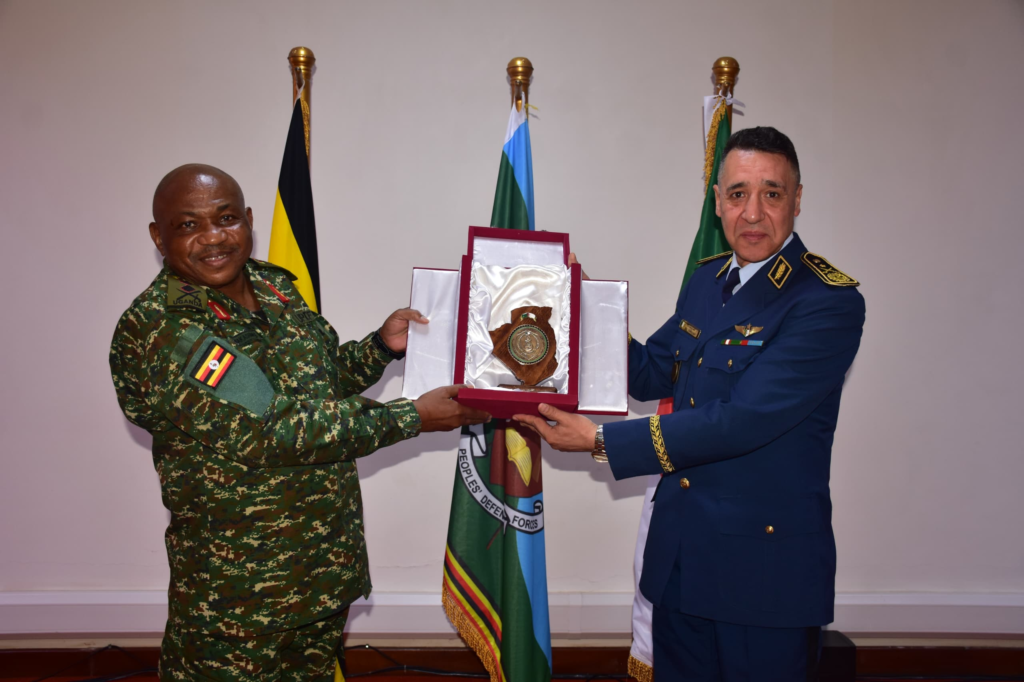A Look Back at the Legacy of Liberation: The Struggle for Peace, Governance, and the Rule of Law under President Yoweri Kaguta Museveni Tibuhaburwa

As His Excellency President Yoweri Kaguta Museveni Tibuhaburwa’s birthday, September 15th, draws near, we are reminded not only of this significant occasion in his life but also of the enduring legacy of a man whose life has been intricately linked to the narrative of Uganda’s liberation, peace, and progress.
From a teenage revolutionary to the long-serving president of Uganda, Museveni has demonstrated political will, ideological coherence, and an unrelenting dedication to stability. However, it is also a story that is firmly rooted in the legal constraints of statecraft, the philosophical principles of government, and the precarious balance of power that has molded Uganda’s course.
Museveni entered Ugandan politics not just as a response to gain power but also as a response to the moral
When Museveni’s forces triumphed in 1986, ushering in the National Resistance Movement (NRM) government, Uganda experienced a turning point. It was not just the end of one form of dictatorship, but the birth of a vision where politics, security, and governance were redefined to serve the people. The liberation struggle was a philosophical statement, declaring that power in Uganda would henceforth belong to those who wield it with the intention of securing peace, ensuring justice, and rebuilding state institutions.
President Museveni’s philosophy of governance, as outlined in his writings and speeches, reflects an understanding of leadership as a sacred trust with the people. His leadership has been guided by what he often refers to as the “fundamentals” security, political stability, and economic growth. His views on power, shaped by his experiences in the bush war, recognize that true leadership is about service to the nation rather than personal aggrandizement. It is about guiding the state in a manner that ensures that future generations will inherit a nation not crippled by conflict, but strengthened by peace.
Over the years, Museveni has articulated a Pan-Africanist vision, extending Uganda’s influence in the region while strengthening internal political structures. His presidency has been marked by a pragmatic approach to governance- where security is the foundation of development, and political engagement is used as a tool to achieve long-term peace. The 1995 Constitution, forged under his leadership, symbolizes his efforts to institutionalize democracy, decentralize power, and provide a legal framework for governance.
However, President Museveni’s long tenure at the helm of Uganda’s leadership also raises important legal and political questions about power and constitutionalism. His continued presidency has spurred debate about the nature of democracy in Uganda, the rule of law, and the boundaries of political authority.
In a constitutional democracy, legal systems are designed to distribute power in a manner that prevents its concentration. Yet, Museveni’s ability to maintain power for nearly four decades demonstrates the complexities of political leadership in post-colonial African states. His administration, while focusing on state stability, has faced challenges around maintaining the integrity of democratic processes, especially concerning term limits and political pluralism.
From a legal standpoint, Museveni’s governance reflects the tension between order and freedom, between continuity and change. For his supporters, his rule represents continuity—a necessary condition for the sustained growth and peace of Uganda. For his critics, the legal amendments that have allowed for the extension of his rule raise concerns about the erosion of democratic checks and balances.
The political future of Uganda rests on how the legal frameworks set by Museveni’s administration evolve. His leadership, while ensuring Uganda’s stability, has also created the need for careful legal transitions that will uphold the democratic ideals established in the post-liberation era.
Philosophically, Museveni’s rule raises profound questions about the nature of leadership in Africa. Can a leader’s extended rule be justified if it guarantees stability and growth? Or does the concentration of power inherently undermine democracy, no matter the outcomes? Museveni’s leadership forces us to consider the nature of authority—not simply as the exercise of power, but as a moral responsibility to serve the collective good.
His approach to governance has often highlighted the need for African solutions to African problems. In Museveni’s view, imported democratic models may not always fit the unique socio-political realities of African states. His emphasis on gradual political reform, rather than abrupt transformations, reflects a political philosophy that prioritizes peace and stability over idealistic experiments.
Museveni has remained consistent in his belief that for African nations like Uganda, a period of extended stability under a visionary leader is essential for laying the foundations of democracy, rather than democracy being an automatic guarantee of stability.
As President Yoweri Kaguta Museveni Tibuhaburwa marks another birthday, his legacy as a liberator, political leader, and statesman invites reflection on Uganda’s past, present, and future. His leadership has been both a shield and a sword—securing the nation from the chaos of its past while shaping its political landscape for decades to come.
In the years ahead, Museveni’s legacy will continue to be debated by scholars, politicians, and citizens alike. Yet, one thing remains clear: his role in Uganda’s political history is undeniable. His impact on the country’s legal and political structures will resonate long after his time in office, shaping the way Uganda navigates the complex relationship between power, governance, and the rule of law. As we celebrate his birthday, we not only honor his personal journey but also the nation’s enduring pursuit of peace, justice, and progress—a pursuit that began with Museveni’s struggle for liberation and continues under his guiding hand.







